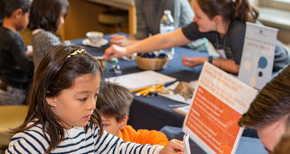When archaeologists first started using the term "public archaeology," it referred to archaeological projects funded by the public. Later, it took on meanings that included activities that engage the public in archaeology through lectures, interpretive signs, or tours of sites and excavations. Today, the term, and how archaeologists engage with communities, goes far beyond this. Public archaeologists investigate the outcomes of the various innovative ways we can engage the public in archaeological research as an audience, as clients, and as equal partners.
There are different areas of specialization within public archaeological practice, such as heritage education, cultural resource management (CRM), interpretation, museum studies, community collaboration, ethics, cultural tourism, among others. There are also different research objectives including education, awareness, activism, community-building, civic engagement, and social justice.
Archaeologists have many names for projects in which archaeologists and interested members of the public work together. These include "outreach," "public archaeology," "community archaeology," "community empowerment," "collaborative archaeology," and "applied heritage research." As the goals and methods of these projects change, so does the language.
As such, no fixed definition of public outreach is used here. Rather, these pages are designed to provide an understanding about the different ways archaeologists practice public archaeology.
Community Involvement in Archaeology
Community groups, descendants, elders, and local historians are just some of the many interested parties who work side-by-side archaeologists in exploring the past. Archaeologists frequently look to local residents for historical information, for assistance in the actual excavation of a site, or for research partnerships.
Many
archaeologists encourage the public to be directly involved in
archaeological projects. After all, it is their community and their
heritage being studied! You could become an active participant in archaeological
research and determine for yourself what archaeological resources mean
to you and your community.


